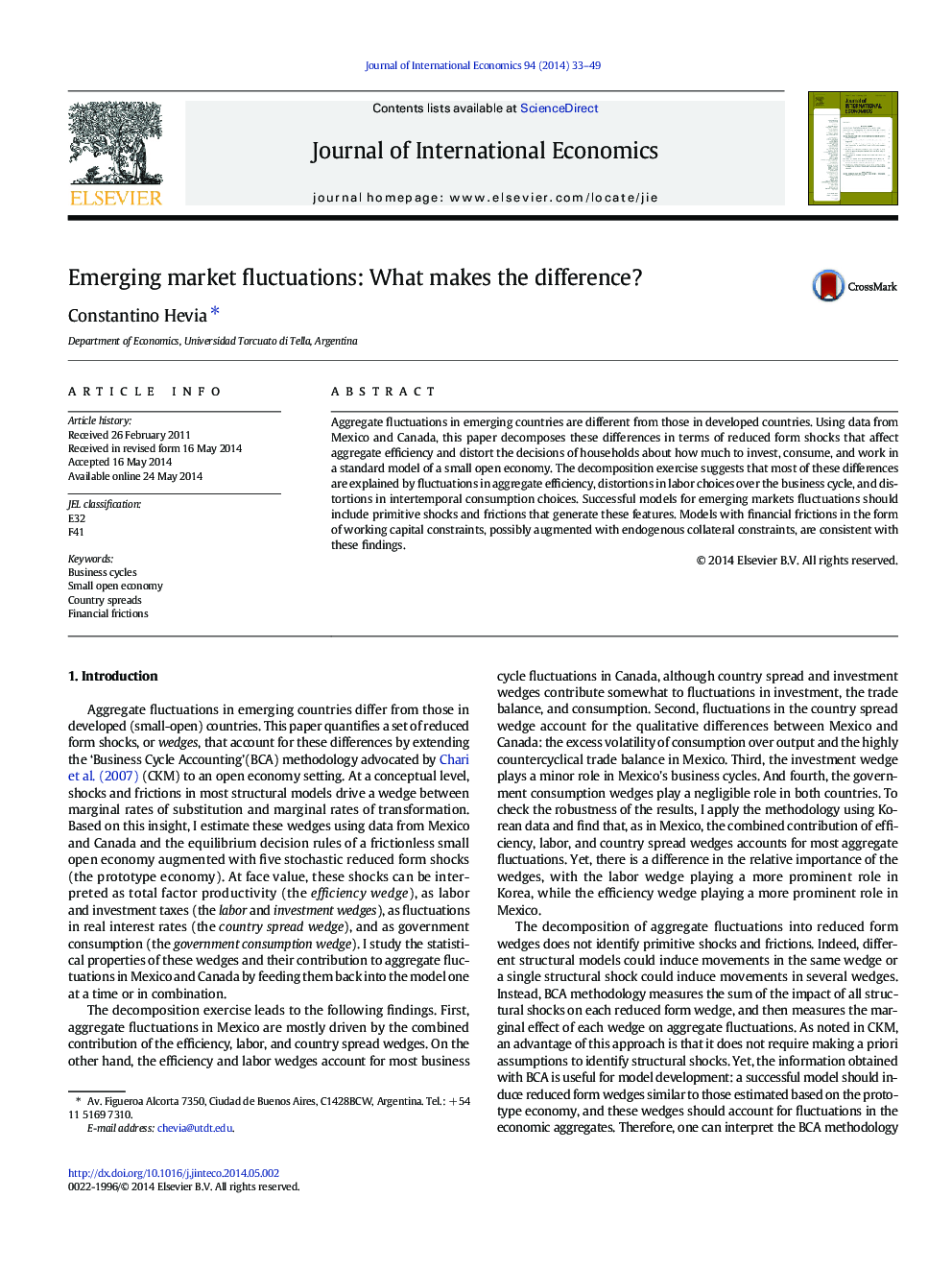| Article ID | Journal | Published Year | Pages | File Type |
|---|---|---|---|---|
| 962578 | Journal of International Economics | 2014 | 17 Pages |
•Aggregate fluctuations in emerging and developed economies are different.•I estimate a small open economy model using data from Canada, Korea, and Mexico.•Business cycles are decomposed in terms of five reduced form shocks or wedges.•Country spread shocks account for the main differences in the business cycles.•Models with several financial frictions are consistent with these findings.
Aggregate fluctuations in emerging countries are different from those in developed countries. Using data from Mexico and Canada, this paper decomposes these differences in terms of reduced form shocks that affect aggregate efficiency and distort the decisions of households about how much to invest, consume, and work in a standard model of a small open economy. The decomposition exercise suggests that most of these differences are explained by fluctuations in aggregate efficiency, distortions in labor choices over the business cycle, and distortions in intertemporal consumption choices. Successful models for emerging markets fluctuations should include primitive shocks and frictions that generate these features. Models with financial frictions in the form of working capital constraints, possibly augmented with endogenous collateral constraints, are consistent with these findings.
